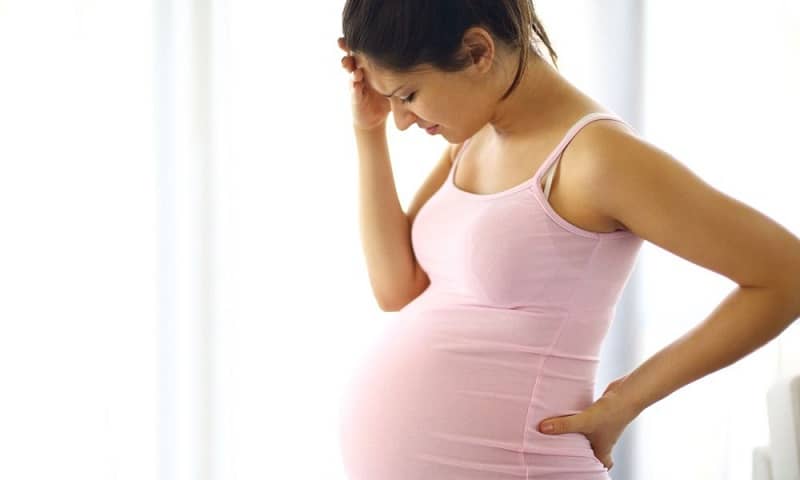


09 Aug How Estrogen Hormone Helps During Pregnancy? Trimester Changes
Human pregnancy is all about the communication between the fetus and the placenta of the mother.
The boundary between these two sees many physiological changes that are ultimately governed by the mother’s endocrine.
Interestingly, the most important endocrinal release involved in carrying out a successful pregnancy is estrogen.
But how estrogen helps in pregnancy is a lesser-known fact because what people notice primarily is the functioning of progesterone.
Hence, today we not only highlight the importance of estrogen in pregnancy but also brush up on how its abnormal levels can be dangerous for you.
How Estrogen Helps in Pregnancy?
For a long time, reproductive endocrinologists noticed that estrogen was always high during pregnancy.
But lesser did they know what exactly the hormone did during pregnancy until the following research came to notice.
Research on the Role of Estrogen in Pregnancy!


Research on the role of estrogen in maintaining pregnancy and stimulating fetal development was put forward by a professor of obstetrics and a professor of physiology.
Source: University of Maryland at Baltimore
Their research brought light to the major interactions of estrogen with other hormones that led to:
- Activation of other hormones
- Development of other hormones
- Changes in the structure of cells
In short, it explained how estrogen regulates the functions of progesterone and stimulates the process of fetal development.
Based on the fetal development of pregnant baboons, here’s what they explained about the role of estrogen in humans:
- Estrogen triggers the activation of the placental corticosteroid pathway which impacts the fetal adrenal glands.
- Due to the pathway’s influence, the fetal glands produce cortisol which helps in the maturation of the fetus.
- The result came from the method of doubling estrogen in one fraction of pregnant baboons and stopping estrogen in other pregnant baboons.
- On the stoppage of estrogen, miscarriages were reported because of inhibited growth of the fetus.
- Baboons with doubled estrogen levels showed that there was faster development of the stem cells into matured cells.
Thus, the research pointed toward how important it is to maintain a healthy balance of estrogen levels during pregnancy to avoid miscarriages.
Hence, make sure you are aware of your estrogen levels while you are pregnant.
How Do Estrogen Levels Change During Pregnancy?
Different phases of pregnancy witness varied changes in the hormonal levels with the hormones spiking up at one time and falling at another.
In the case of estrogen, there’s often a spike during the first trimester and then a gradual drop as per its requirement in the body.
Here is how estrogen levels change in your body with each trimester of pregnancy.
#1. First Trimester
Estrogen plays a vital role in the first trimester as it increases the blood flow for better management of the uterine lining.
Hence, there is a spike in estrogen levels in early pregnancy, and it lies between 187 to 2498 pg/ml.
#2. Second Trimester
The second trimester sees continuous growth in the levels of estrogen as the hormone is now functioning to stimulate fetal growth.
Hence, you might find your estrogen levels lying somewhere between 1276 – 7193 pg/ml.
#3. Third Trimester
The estrogen along with progesterone reaches the peak level at 32 weeks. In fact, your estrogen levels can be as high as six times your pre-pregnancy days.
This is because it’s actively involved in fetal and placental communication.
During this time, the estrogen level is around the range of 6138 – 3461 pg/ml.
Since there’s a regular change in pregnancy hormones week by week, your estrogen levels may show fluctuations.
However, until they lie in the above-mentioned range or are slightly near to them, there isn’t a matter of concern.
But if there is a relatively major change in the range of estrogen, we might suggest you consult a doctor.
Why?
Because abnormal hormonal levels can result in serious complications in your pregnancy and can even lead to termination of the pregnancy.
Oestrogen Imbalance – Do You Have High Estrogen When Pregnant?
Estrogen is an important hormone for pregnancy and hence it increases until the last trimester when it reaches its peak at 32 weeks.
Its main role is to work alongside progesterone for maintaining the healthy development of the fetus by developing new blood vessels and improving nutrient exchange.
However, there could be a possible increase in estrogen levels beyond the healthy range in pregnant females due to various reasons.
Abnormal Increase in Estrogen During Pregnancy
While high estrogen is common during pregnancy, the following causes can result in an imbalance.
- Medications – Medications used before pregnancy can show the side effects of high estrogen levels. For example, certain herbal remedies can increase your estrogen levels.
- Food – Many poultry animals are injected with growth hormones, which when indigested by women, raise the estrogen levels.
- Perfume and personal care products – Some skin care products often have ingredients that mimic the activity of estrogen, creating an imbalance in the estrogen range.
- Stress – Too much stress causes an extra release of cortisol levels, which causes an imbalance in the progesterone and estrogen levels. Progesterone levels fall and estrogen increases.
- Plastics and exposure materials – Many metals and plastics can have substances that mimic the actions of estrogen. Exposure to them causes hormonal imbalance.
Well, high levels of estrogen during pregnancy don’t cause complications or termination of the pregnancy.
Yet, there’s research indicative of birth defects due to high estrogen levels during pregnancy.
How is Too Much Estrogen Bad for Pregnancy?
A study was conducted to research the impact of extra estrogen on fetus development. For the study chemical, bisphenol A, present in tins with estrogen-like properties was used.
They also used estrogenic components present in birth control pills.
The team fed pregnant mice a dose of 0.1 mg of Ethinyl estradiol daily. The second group of mice was given 10 mg of Bisphenol A for the same period.
According to the results:
- Male mice born to pregnant mice on Bisphenol A dosage had more ducts in their prostate gland.
- Even Ethinyl estradiol showed an increase in several ducts in male progenies.
Based on the results, it was suggested that exposure of the fetus to this synthetic estrogen resulted in hyperactivity of the cells of the prostate.
This suggests that the high levels of estrogen among pregnant women can lead to a fetus developing birth defects.
However, more research is required to confirm the effects of high estrogen on pregnancy.
Now, high estrogen is not the only factor you should be wary of. Even low estrogen levels during pregnancy can be a possible threat.
Effects of Low Estrogen Levels During Pregnancy



Estrogen helps a lot in pregnancy and hence its deficiency can be an area of serious concern.
According to reports, a lack of healthy estrogen levels not only raises the risk of birth defects but can also result in the termination of pregnancy or miscarriage.
Here are some of the consequences of low estrogen levels during pregnancy that you should be aware of.
What Happens If Estrogen Levels Are Low During Pregnancy?
Following are some of the effects you will notice due to low estrogen levels during pregnancy.
#1. Can Cause Infertility in the Offspring
According to studies conducted at the University of Maryland Medical Center, women with low estrogen levels during their pregnancy have a risk of progenies with infertility.
This is because a lack of estrogen in the mother can result in fewer eggs in the female fetus.
#2. Affects the Nutrition of the Fetus
Estrogen is responsible for the healthy transfer of nutrients through the placenta to the fetus.
This can result in an underweight or immature birth of the child.
#3. Miscarriages
The most dreadful effect of low estrogen levels in the mother is miscarriage. There are not one but two popular studies that quote low estrogen as a marker for miscarriages.
People Also Read: Can Women Get Pregnant After 50?
While we have already discussed one such study, here is another study indicative of estrogen being a marker for pregnancy prediction.
Study on Low Estrogen and Miscarriage
The research was conducted to predict miscarriage in the first trimester by looking at the serum levels of estradiol (estrogen), progesterone, and other pregnancy hormone levels within 9 weeks.
For these 165 women taken into consideration, in the first 5-6 weeks of gestations, the hormonal levels were measured for the above-stated hormones.
The second measurement was done post 7 – 9 weeks.
Based on the results, 71 cases were grouped as miscarriage groups with low estrogen and progesterone levels, or alone with low estrogen levels.
This suggested low serum levels of estrogen can be indicative of an early prediction of miscarriage.
Causes of Estrogen Deficiency During Pregnancy
There are both genetic and systemic causes of low estrogen levels.
While genetic causes often result in infertility among women, systemic causes can be balanced out during pregnancy in natural ways.
Some of the causes of estrogen deficiency that you might notice due to systemic causes are:
- Pituitary Gland defects – Abnormal functioning of the pituitary glands can affect the normal secretions of estrogen. The gland releases FSH which acts on ovaries to stimulate the release of estrogen.
- Eating Disorders – Anorexia can influence your nutrient intake and hence affect normal hormonal levels including estrogen levels. It devoids you from the essential proteins required for the secretion of the hormone.
- Excessive Exercising – This can trigger the release of more stress hormones to counteract the increasing heart rate. But cortisol or the stress hormone reduces the progesterone levels, and hence estrogen increases.
Other than these three major causes, the genetic causes which affect estrogen levels and fertility are:
- Turner Syndrome or Fragile X – These syndromes are characterized by chromosomal defects that result in partial or complete ovarian failure and hence estrogen deficiency.
- Autoimmune Disorders – These disorders can result in ovarian insufficiency, causing a decline in the release of hormones.
Since both high and low estrogen levels can impact pregnancy, it is important to maintain healthy levels of estrogen.
How to Balance Estrogen Levels During Pregnancy?



Maintaining an optimum balance of hormones during pregnancy is essential to not just letting your fetus develop healthily, but also to keep body and mind healthy.
Here is how you can balance your estrogen during pregnancy in a few easy ways:
- Micro-manage your diet plan
- Exercises regularly
- Sleep well
- Try stress-busting activities
- Keep hydrated
Following is a detailed look into each of these tips to balance estrogen while you’re pregnant.
#1. Focus on the Diet
While some foods help balance your hormones, others can cause havoc in the natural healthy range.
Some of the foods that you should avoid when pregnant include:
- Fried food
- Caffeine
- Sugar
- Excessive use of dairy products
The foods you can go for are:
- Antioxidants-rich fiber foods
- Omega-3 fatty acids-rich foods like avocadoes, sweet potatoes, and green leafy veggies.
- Lentils for enough protein levels in the body
- Nuts for essential minerals
Evidently, cutting back on as well as including some foods in your diet can make a huge difference in your hormones.
#2. Exercise Daily
Make sure you indulge in regular moderate exercises for healthy hormonal balance.
They not just improve the blood flow to different areas of your body but also increase the sensitivity of hormone receptors.
#3. Take Enough Sleep
An inadequate amount of sleep during pregnancy can raise your chances of facing hormonal imbalance.
Since many hormones are released at peak only during the night when your body is at rest, sleeping is crucial.
For a healthy sleep cycle, try keeping your bedroom free from technology and meditating a little before going to bed.
#4. Stress Reduction Therapies
Stress is a major cause of estrogen imbalance and hence focusing on stress-releasing therapies and programs can be helpful.
Some popular ways of cutting out stress from your life are meditating, yoga, music therapy, and also taking morning walks.
#5. Fluid Intake
Make sure you drink enough fluids to keep your body hydrated and healthy. You can even try drinking juices of major superfoods that can effectively boost estrogen levels if you are facing an estrogen deficiency.
Just follow these at-home tips to maintain estrogen levels while you’re pregnant. Plus, avoid some foods to help balance out the hormones.
Conclusion
There are constant changes in hormone levels during pregnancy, and it’s quite normal as well.
However, a huge gap between ideal and imbalanced estrogen levels can be a serious threat to your pregnancy.
Hormones, especially estrogen, are pivotal for the development of the fetus and its maturation.
So, any significant changes in the levels can alter either the pregnancy or the offspring.
For example, in the case of estrogen, one such study suggests that a significant drop in estrogen levels during pregnancy can create situations like a miscarriage.
Thus, monitoring and keeping your hormones balanced during pregnancy is important for healthy childbirth.
Do you have any more thoughts or has your doctor given you tips to maintain estrogen levels? Do share it with other readers in the comments section.
READERS ALSO LIKE: Best way to get rid of heartburn while pregnant



No Comments